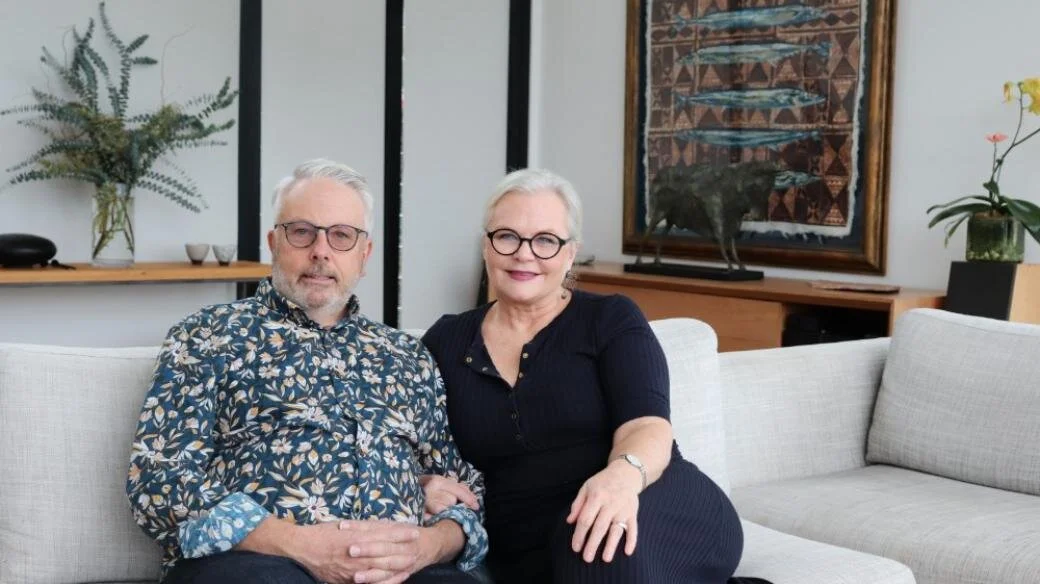Dita De Boni, NBR:
One of the country’s largest private company investors, Direct Capital, has taken a stake of just under 40% in the country’s largest skin treatment and appearance medicine company Caci Group.
The Group and franchise holder is majority owned by founders David and Jackie Smith, who operate as FAB Group, with Direct Capital taking around 39% in a deal announced yesterday.
The investment’s price tag is confidential, but is expected to give the 25-year old beauty company the chance to grow its 50-odd clinic footprint in New Zealand, as well as possibly more aggressively pursue exporting the Caci subscription model.
The Smiths already own Skinsmiths, which operates 10 clinics in the UK on a similar model to Caci.
David Smith said the company, which makes revenues of over $60 million a year, had been looking for an investor for some time, and was in talks with Direct Capital for a year.
“To remain the market leaders we want to accelerate our growth and to do that we need access to additional capital,” Smith said.
“However, this is also highly personal for us, so we took our time to find the right partner, and one who shares our values.”
Caci owns 40% of the country's Botox market
Direct’s Capital investment would mean Caci was poised to take full advantage of an industry growing at upwards of 10% a year, in a marketplace worth tens of millions of dollars in New Zealand - in which Caci was the biggest player with the most clinics.
Smith says there is scope for a further 20-30 clinics in New Zealand’s regional hubs over the next few years, to complement the existing 53 clinics. The business had engaged PwC to help conduct market research on identifying future locations.
Caci offering
To the casual observer beauty clinics seem to abound, especially in urban areas, and statistics show there were almost 4000 treatment clinics across the country, prior to Covid-19.
But Smith says Caci’s offerings and business model are different from the average beauty therapy clinic.
The treatments are more aimed at the mature woman, requiring frequent treatments over a period of 10-12 months: “It’s taken 45 years for some of these issues to appear and they’re not going to disappear overnight - we’re offering real results, and that’s what our clients are paying for, not the treatment, but the result.”
Lip fillers, botox, microdermabrasion, laser therapy for hair removal and other offerings, conducted by the famous white clinician-coated therapists, are paid for on a subscription basis, meaning they are both locked in and largely impervious to market dips such as that seen during the Cobid-19 lockdown.
In touting franchise ownership, Caci says it has 40% of the domestic Botox market and the biggest advertising dollar in the beauty industry.
Long term treatment plans are a company cornerstone
Caci clinics are generally smaller, as they are not reliant on foot traffic volumes to make money.
Capital raising past
Caci listed on the small cap NZAX board when the alternative market was launched in 2003 but de-listed in 2007 after a takeover by Cosmedex Investments, set up by the Smiths to buy back the company.
The Smiths told NBR previously that listing on the untested market had been “a disaster” and it took years to buy the company back and get it on track, after placing too much reliance on outside advisers who didn’t know the business.
Then in 2016, the company announced plans to list on either the NZX or the ASX in 2019. Former NZ Venture Investment Fund chief executive Franceska Banga was appointed to chair of FAB Group, owner of the Caci Clinic brand, to spearhead the listing plan.
Asked why that plan was abandoned, Smith simply said he believed private equity or another form of private investment was better suited to the business.
“Investment is key for us to remain as the market leader and take this business to the next level, be that listing, overseas expansion or whatever, and with Direct Capital in the boardroom we will have experts to help us make that decision.
Direct Capital
Direct Capital director Gavin Lonergan said when the company made an investment, it looked for an industry that was growing, and within it, the leading private company. Caci fulfilled both criteria, he said.
There was a big trust factor inherent in the company’s brand, which is important for a company doing the types of treatments offered by Caci, even while they were less invasive than the likes of dermatology and plastic surgery.
“The market is differentiated, and these guys are the clear market leader, and with that scale you get a level of service and medical oversight that one person operators won’t be able to compete with.”
He said the company had a good 5-10 year growth path ahead of it in New Zealand, let alone other markets.
Direct Capital’s other investments include Beca, Perpetual Guardian, and AS Colour among many others.
Caci, like many businesses, was interrupted by the Covid-19 lockdown but has bounced back quickly, due to the strength in its subscription-based memberships model.
Lonergan was unfazed by the pandemic’s effect on Caci.
“This year will be an unusual time for all businesses, but we take a longer-term view; we started discussing this investment with David and Jackie long before Covid-19 came along and we are delighted to now complete the investment and begin our partnership.”

